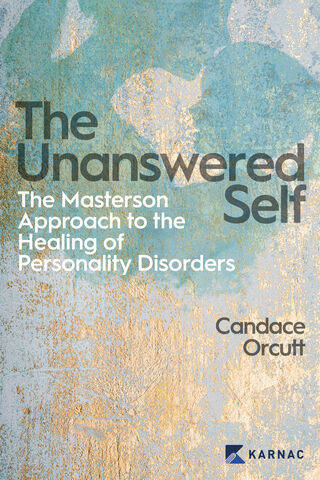Personality
A New Book about the Healing of Personality Disorders
Can a personality disorder be healed?
Posted August 17, 2021 Reviewed by Abigail Fagan
Key points
- A new book, called "The Unanswered Self: The Masterson Approach to the Healing of Personality Disorders," provides valuable insight.
- Dr. James F. Masterson pioneered the Masterson Approach, a developmental, object relations approach to treating personality disorders.
- Understanding what causes personality disorders can help inform treatment approaches.
This blog post is a review of the book, The Unanswered Self: The Masterson Approach to the Healing of Personality Disorders, by Candace Orcutt, Ph.D.
Psychiatrist and psychoanalyst James F. Masterson, M.D., pioneered the Masterson Approach, a developmental, object relations approach to treating personality disorders. Through his clinical work and research, Dr. Masterson came to believe that the basis and treatment of personality disorders starts with understanding the formation of self and relationship that begins in the first three years of life.

I was first introduced to understanding “Self” during my seven-year training at the Masterson Institute in the 1980s with Dr. James Masterson. At that time, my supervisor, trainer, mentor, and now close friend, was Candace Orcutt, Ph.D.
In this book, Orcutt does a remarkable job detailing the theory and clinical practice of the Masterson Approach to the healing of the troubled self. In the process, she presents in-depth integrative concepts of “Self” of world-renowned theorists — Freud, Winnicott, Mahler, Kohut, and Kernberg — showing how these views inform the structure and foundation of Masterson’s work.
The “three major personality disorders” considered here include the schizoid, narcissistic and borderline disorders, which, Masterson holds, find their origin in failure to adequately manage stages of childhood development crucial to the psychic attainment of separation and individuation.
Orcutt devotes an entire chapter to each of these topics, illustrated by detailed and lively case studies. A closing chapter offers an overview of Masterson’s work and beyond, with attention to trauma, dissociation, self-states, and multiple personality disorder (now called dissociative identity disorder). From a historical perspective and a developmental approach to the cause and treatment of personality disorder, Orcutt guides the reader’s understanding of why problematic behaviors are displayed and explains specific techniques for helping.
Who Might Be Interested in Reading This Book?
- Members of NAMI (National Association of Mental Illness)
- People planning to be a clinicians
- Law enforcement
- Educators
- Clergy
- Parents and loved ones of those with personality disorders
Why Read this Book?
Understanding the cause of personality disorders, and what you, a parent, loved one, and/or professional could possibly do to change the outcome is highly beneficial. It is extremely important to know what steps and actions you should take when encountering a person with a schizoid, borderline or narcissistic personality disorder.
From my own extensive training, I have been able to guide and consult on how to manage and cope with the enormous turmoil often encountered in dealing with a person with a personality disorder. In the past, I have presented in-depth lectures on this subject to doctors to help them manage their medical office patients and waiting rooms, to local police on managing criminals, along with encouraging patients, colleagues, clergy and members of NAMI on behavioral management.
Several of my patients have struggled with children, spouses, or relatives with personality disorders and dissociative disorders, having no idea how to relate to them in their day-to-day life. I have referred them to several books on the subject, however, Orcutt’s book goes beyond any other. It fills the void and provides much deeper insight and guidance on the subject.
I think this book is a must-read for anyone interacting with a person with a personality disorder.
© 2021 DR. DIANE® ROBERTS STOLER, ED.D.


